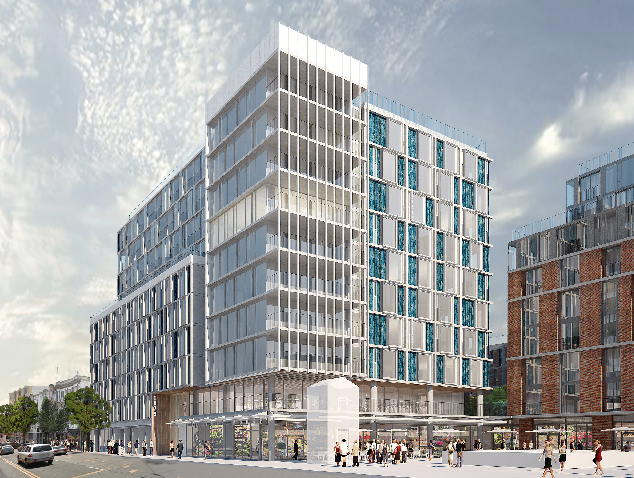City’s economist misses a few key points in his analysis of the impacts of the Mission Moratorium

By Tim Redmond
SEPTEMBER 14, 2015 — The Chronicle gave a big banner headline to the study by the city’s economist that says the Mission Moratorium won’t solve the housing problem, and might make things worse.
The notion that a pretty mainstream economist would say that supply and demand are determining factors in the price of land in San Francisco is hardly a surprise. The analysis by Ted Egan is about what we could have expected.
But it misses a couple of crucial points that are really at the heart of the measure, which will be on the ballot as Prop. I.
For starters, Egan assumes that building new market-rate housing will have little or no impact on the value of neighboring property:
The report also finds that new market rate housing tends to lower, rather than raise, the value of nearby properties, and therefore a moratorium on market-rate housing would not protect nearby existing housing from rising prices.
That makes sense in an abstract way: According to the Economics 101 textbooks, if there are 1,000 houses in a neighborhood, and you add 1,000 more, each existing house becomes less valuable. The same way that, if you’re selling beans at the market, and five more people come and set up next to you and start selling beans, your prices are going to come down.
But that’s not how it works in the real world, particularly not in a neighborhood like the Mission District in San Francisco.
Take the area around 16th and Mission. Gentrified, yes – but still not the same in terms of property value as, say, 22nd and Valencia. Is Ted Egan seriously saying that putting million-dollar condos at that corner won’t drive up property values in the surrounding areas?
Many modern urban economists argue the opposite: that the price of beans doesn’t come down if having five stalls stalls instead of one turns the market into a destination for thousands of more wealthy artisan-bean-buyers, and that adding new high-end housing to a low-income neighborhood makes other wealthy people feel comfortable living there and drives up everyone’s costs. It also drives up the cost of retail space at the street level, driving out older community-serving businesses.
That’s kind of like Gentrification 101, which (sadly) they don’t teach in a lot of college economics programs.
Oh, and demand for housing in SF right now is pretty close to infinite – Egan himself says that it would take at least 100,000 new units to bring down prices. So building new market-rate housing in the Mission can’t possible reduce prices.
Seriously: Anyone who wants to argue that building the Monster on Mission above the 16th Street BART station will bring down nearby property values needs his or her Ph.D examined.
Which means, of course, that a moratorium on development will, for the moment, prevent large projects that drive up costs for everyone.
The other issue is more tricky, but also very real.
The mayor of San Francisco has no legal right to say to a property owner: Sorry, there’s no way we will ever allow you to turn your industrial or retail property in the Mission into market-rate condos, even if the zoning allows you to build them. So your property is worth a lot less than you think, and you might as well sell it to the city, cheap.
That would violate a whole lot of state and federal laws.
On the other hand, if the voters decide that they want to put a moratorium on new market-rate housing in the Mission, and there’s a possibility that the restrictions could continue for a longer period of time, it might, in fact, make property that the owners want to turn into luxury condos worth less money.
That’s the reality of zoning. If the city – for good and logical reasons – zones some property only for Production, Distribution, and Repair, that land is by definition less valuable. You can’t charge as much rent for PDR space. You can’t sell a plot zoned as PDR at the price that land zoned for highrise office space or condos would command.
There are lots of reasons for PDR zoning (industrial use and residential use aren’t always compatible) but the main one right now ought to be the price of land. Once property can be used as condos, PDR uses will be instantly and forever displaced.
So while adding new market-rate housing won’t bring down land prices in the Mission, a moratorium might. And with so little land available, and the need for affordable housing so desperate, that could be a good outcome – for the city, not for the landlords.






